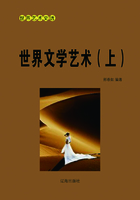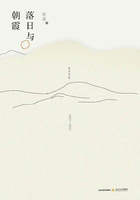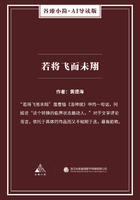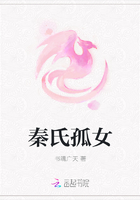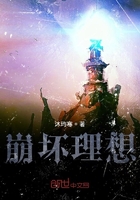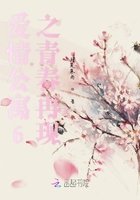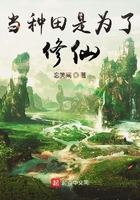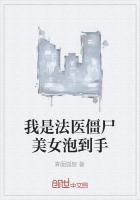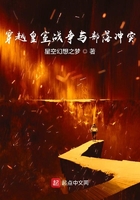In September 1941, the Japanese puppet authorities promulgated the "Outline of the New Labor System", instituting a labor system for labor-deficient military projects, industrial and mining underground operation and highly dangerous work.
On October 26, 1942, the "Law on Nationals Performing Diligent and Official Duties" published by the puppet Manchukuo regime stipulated: Young men, aged between 20-23, except those engaging in military service, must join the diligent work-contributing team to do labor service for 12 months. The diligent-work-contributing team is the largest uncompensated labor contingent, in 1943 alone, the number of people joining the team exceeded 500,000, later, in the form of "student labor-contributing team", "women labor-contributing team", "elderly diligent-work-contributing team", the "entire nation was turned into laborers" to provide uncompensated labor service for "Japan"s wartime economy".
(日本掠夺的大量物资。
Plundering huge amounts of materials)
(1936年古海忠之以满洲国国务院主计处长身份参与制定《第一次满洲产业开发五年计划》(汤岗子会议决议)及《日满华经济建设要纲》,掠夺东北资源。
In 1936, Furumi Tadayuki, in the capacity as head of the accounting division under the Manchukuo state council, participated in formulating the first "Five-Year Plan for Manchu Industrial Development", the resolution adopted at "the tanggangzi conference" and the "Outline on Japan-Manchu-China Economic Construction", all were designed to pillage northeast Chinese resources.)
(掠夺石油运往日本。
Petroleum looted was transported to Japan)
“产业开发五年计划”把伪满经济纳入日本军国主义的经济计划之中,是“以帝国为主体,根据日满一体化原则安排”的对东北进行资源掠夺的计划,要求东北拆借钢、煤、铁、镁和粮食、油料,要求东北成为日本的市场。《日满华经济建设要纲》则是把对东北的经济掠夺和“合作”扩大到汪精卫伪政权的控制区,为“大东亚共荣圈”所设。
The "five-year industrial development plan" included the puppet Manchukuo economy into Japanese militarist economic plan. It was a plan drawn up for plundering northeast China"s resources and arranged in accordance with the principle of the integration of Japan and puppet Manchukuo with the empire as the mainstay. The plan called for the loaning out of northeast China" steel, coal, magnesium and grain and oil crops, and for turning northeast China into a Japanese market. The "outline on Japan-Manchukuo-China Economic Construction"extended the plunder of and "cooperation" with northeast economy to the areas under the control of the Wang Jingwei puppet regime, set up as part of the "East Asia Co-prosperity Sphere".
(当时抚顺露天矿矿区采煤的情景。东北沦陷期间共有数千万吨煤炭从这里掠运日本。
The coal-mining scene of the then Fushun open-pit mining area. During the period when northeast China fell into enemy hands, a total of tens of million tons of coal were looted and transported to Japan.)
(挖掘机正在抚顺西露天矿掘煤。
The excavator is excavating coal at the Fushun west open-cut mine.)
(1940年6月至1941年11月,古海忠之以经济部长身份参与制定《米谷管理法》、《特产品专管法》、《农产物交易法》,通过推行上述政策,日本在中国东北地区掠夺大量粮食,供侵略战争之用,致使东北各地连年闹饥荒,行乞者络绎于途。
From June 1940 to November 1941, Furumi Tadayuki, in the capacity as director of the economic department, participated in formulating "the Law on the Management of Rice and Cereals", the "Law on the Exclusive Management of Special Products" and "the Law on the Transaction of Farm Products". Through implementation of the above-mentioned policies, Japan robbed the northeast region of huge amounts of grain for use in its aggressive war, with the result that various parts of the northeast China suffered consecutive years of famine and a continuous stream of beggars wandering on the streets.)
(1932年10月8日,日本第一次武装移民在辽宁省大连登陆。他们分别来自日本的青森、岩手、秋田、山形、福岛、宫城、新、长野、群马、柄木、茨城等县。
On October 8, 1932, Japan"s first armed immigrants landed in Dalian, Liaoning Province. They came respectively from several Japanese counties. Aomori, Iwate, Akita, Yamagata, Fukushima, Miyagi, Niigata, Nagano, Gunma, Tochigi, Ibaragi.)
(1941年流浪奉天(沈阳)街头的中国难民、孤儿。
Chinese refugees and orphans were roaming about the streets in Fengtian (Shenyang) in 1941.)
1941年9月30日,日伪公布《特产品专管法》,对大豆和油料作物实行专门管理,将大豆及制品和其它油料列为日本军需物资强行“收购”。
三法规定对米谷(稻米)和粮谷(高梁米、玉米、谷子、小米)等实行统制,即这些粮食的购销、加工均由伪满政府管理,即使是谷糠和豆饼也被列为军需物资,由日本关东军控掌运输及分配。规定,凡不经过这一渠道的农产品,均视为非法。
On September 30, 1941, Japan and puppet Manchukuo published "the Law on the Exclusive Management of Special Products", under this law soybean and oil crops were placed under special management, soybean and soybean products as well as other oil crops were listed as Japan"s military supplies which were forcibly "purchased".
The three laws stipulated that rice and cereals (sorghum, corn, grain and millet) were placed under control, this means that the purchase, marketing and processing of these kinds of food grain were all managed by the puppet Manchukuo regime, even rice husks and bean cakes were listed as military supplies which were controlled, transported and distributed by the Japanese Kwantung Army. It was stipulated that agricultural products not going through this channel were all seen as illegal.
(药店里被迫经营鸦片。
Drugstores forced to sell opium.)
(当时东北地区大面积种植罂粟。
Opium was planted in large areas in northeast China.)
(1941年,《战时紧急经济方策要纲》出笼,日伪扩大了钢铁、铜、铝器皿等物资的搜刮,日本人主办的《盛京时报》也在报道关于年度金属回收情况。
In 1941, with the appearance of "the Outline on Wartime Emergency Economic Policy", Japan and the puppet regime expanded their extortion of iron and steel, copper and aluminum utensils and other materials, the "Shengjing Times", run by Japanese, also reported on the retrieving of annual metals.)
(有关武部六藏、古海忠之主持召开省次长会议研究掠夺农产品对策的报道。
The report on Takebe Rokuzo and Furumi Tadayuki presided over the convocation of conference of deputy governors to study the measures to plunder of agricultural products.)
(有关古海忠之连续晋级受奖的报道。
The reports on the successive promotion and award granted to Furumi Tadayuki.)
(在沦陷区日本侵略者推行奴化教育,建立了一套殖民化的教育体制。在中国东北,日语被定为各级学校的必修的“国语”课,原有的国语改称汉语。学校不得悬挂中国地图,不得使用“中华”字样。日本侵略者企图以此消磨和摧残中国人民的民族意识,实现其同化政策。



